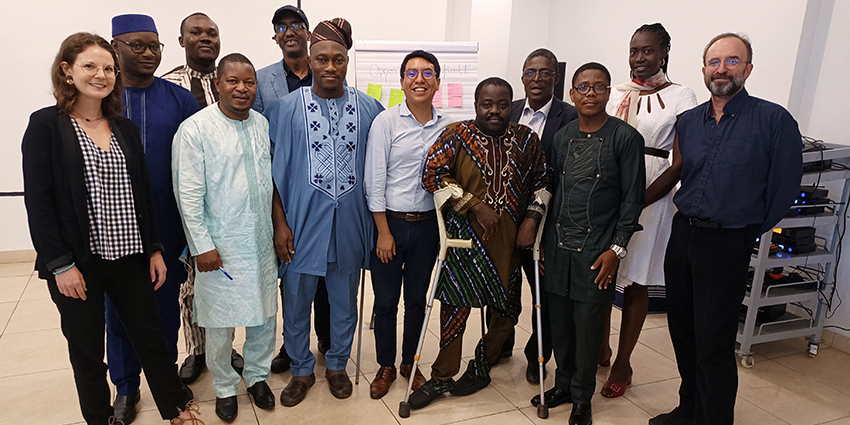Improving the resilience of small businesses and smallholders: the Foundation organizes training for its partners as part of its AT offer

Small businesses and small farms are particularly vulnerable to risks, including climate change and the COVID pandemic, as well as exposure to theft, fire, and other threats. Financial institutions serving this market segment have historically focused on financing the operations and growth of these businesses. However, now is the time to rebalance attention to the protective role of financial services.
The transition from productive to protective financial services is particularly relevant for financial service providers (FSPs), which can mobilize savings because they can offer a range of services. The distribution of inclusive insurance products by FSPs is possible because they are well-established in communities and have established trusting relationships with their clients. Moreover, the introduction of insurance into their product portfolio also reduces their own risk exposure: insured clients are less vulnerable and therefore more likely to repay their loans even in the event of an adverse event.
However, the challenges are numerous. Offering insurance to clients requires new skills, such as understanding client risks, negotiating and managing partnerships with insurers, and implementing new business strategies. Furthermore, PSFs are often underinsured themselves, lacking sufficient protection for their own assets and staff.
In 2017, the Grameen Crédit Agricole Foundation and the International Labor Organization (ILO) conducted a survey of the Foundation's partners on their involvement in inclusive insurance. Of the 36 FSPs that responded to this survey, 69 already offered some form of insurance. However, at the time, most of them only offered basic and mandatory products, such as outstanding balance insurance, which offered limited benefits to clients. Yet, 75 of the respondents were interested in introducing inclusive insurance or expanding their current offerings. To do so, however, the FSPs highlighted some of their needs, such as access to financing, technical assistance, and training.
It is within this framework that the Grameen Crédit Agricole Foundation organized a first training session for its partners in September 2022, in Benin. With 9 participants from 5 countries, this first training, which took place over two days, focused on the value of insurance, strengthening the product portfolio, strengthening the organizational structure of MFIs, improving operational processes and ways to improve impact in the organization of institutions. The main objective of the training was to enable partner institutions to acquire the tools to design a comprehensive strategy to make changes to the existing microinsurance offering and to be able to identify ways to increase its efficiency while improving its value and contribution to the MFI's business strategy.
Overall, the beneficiary institutions appreciated the training and its content and deemed it relevant and adapted to their needs. This training will also be followed by support actions including monitoring the West African market in terms of agricultural insurance offerings, sharing best practices through occasional field visits, and reviewing protocols or agreements concerning borrower death products.
More information on the Foundation's technical assistance offer by clicking here.
_________________________


